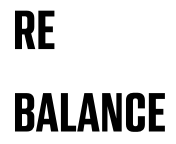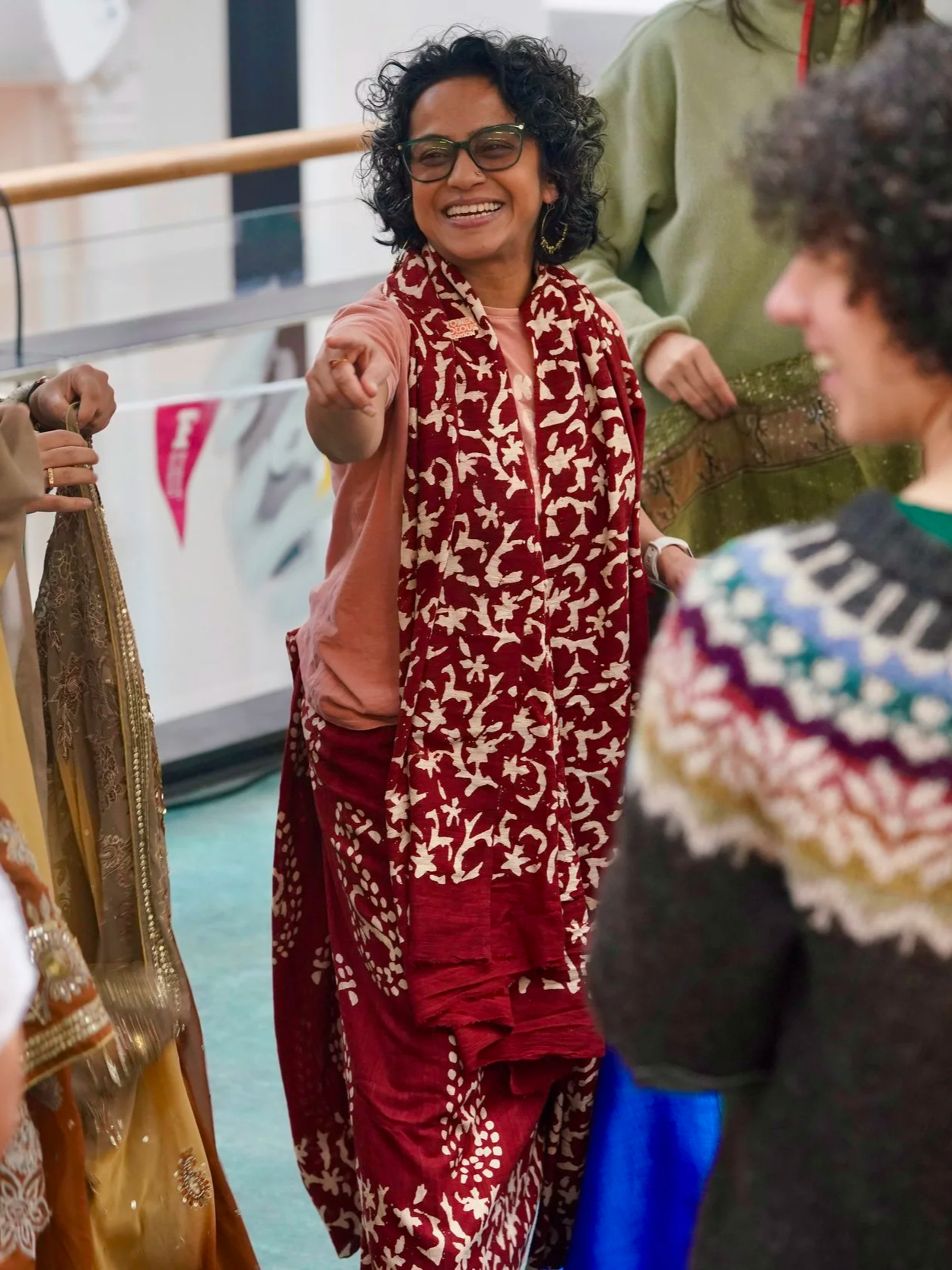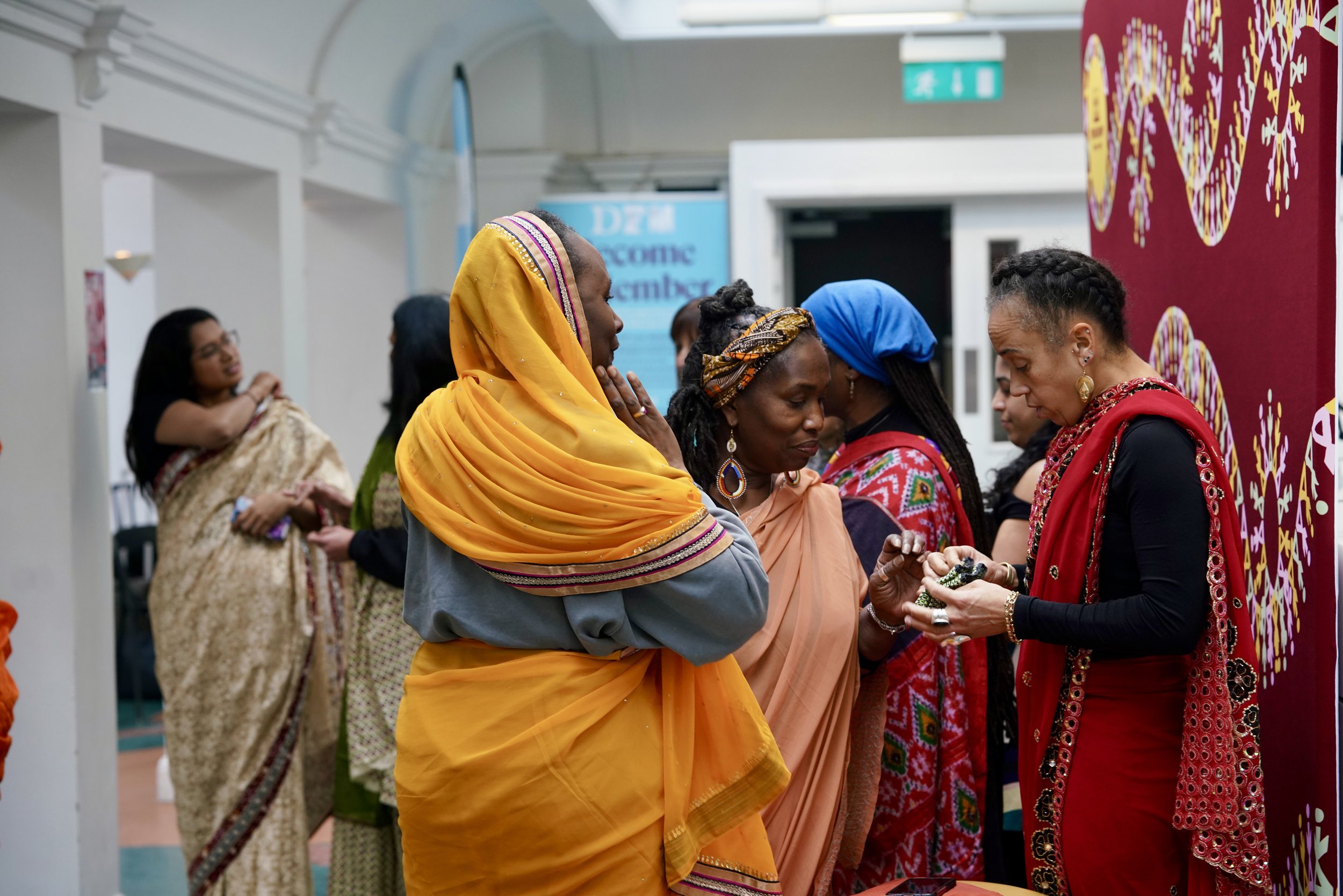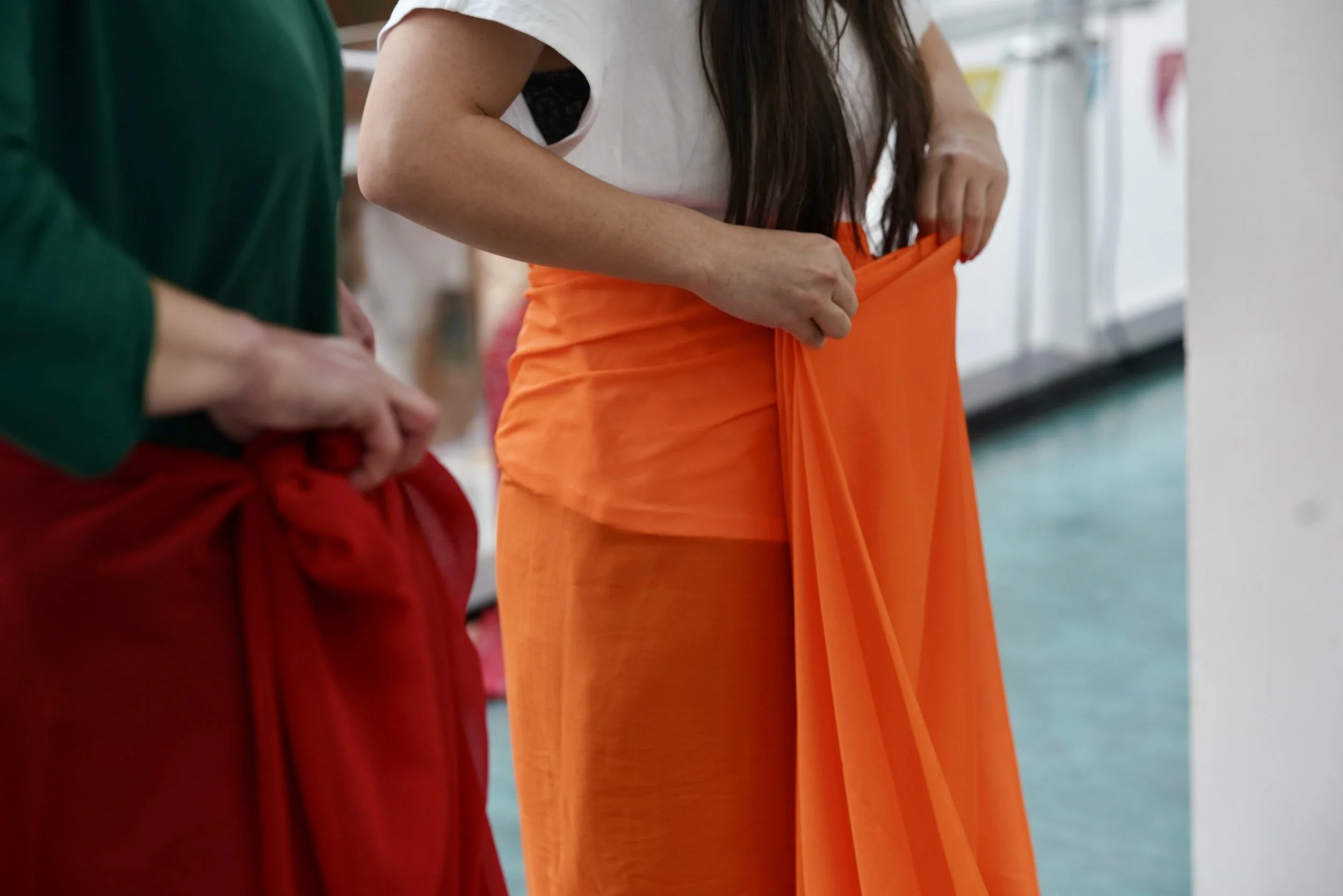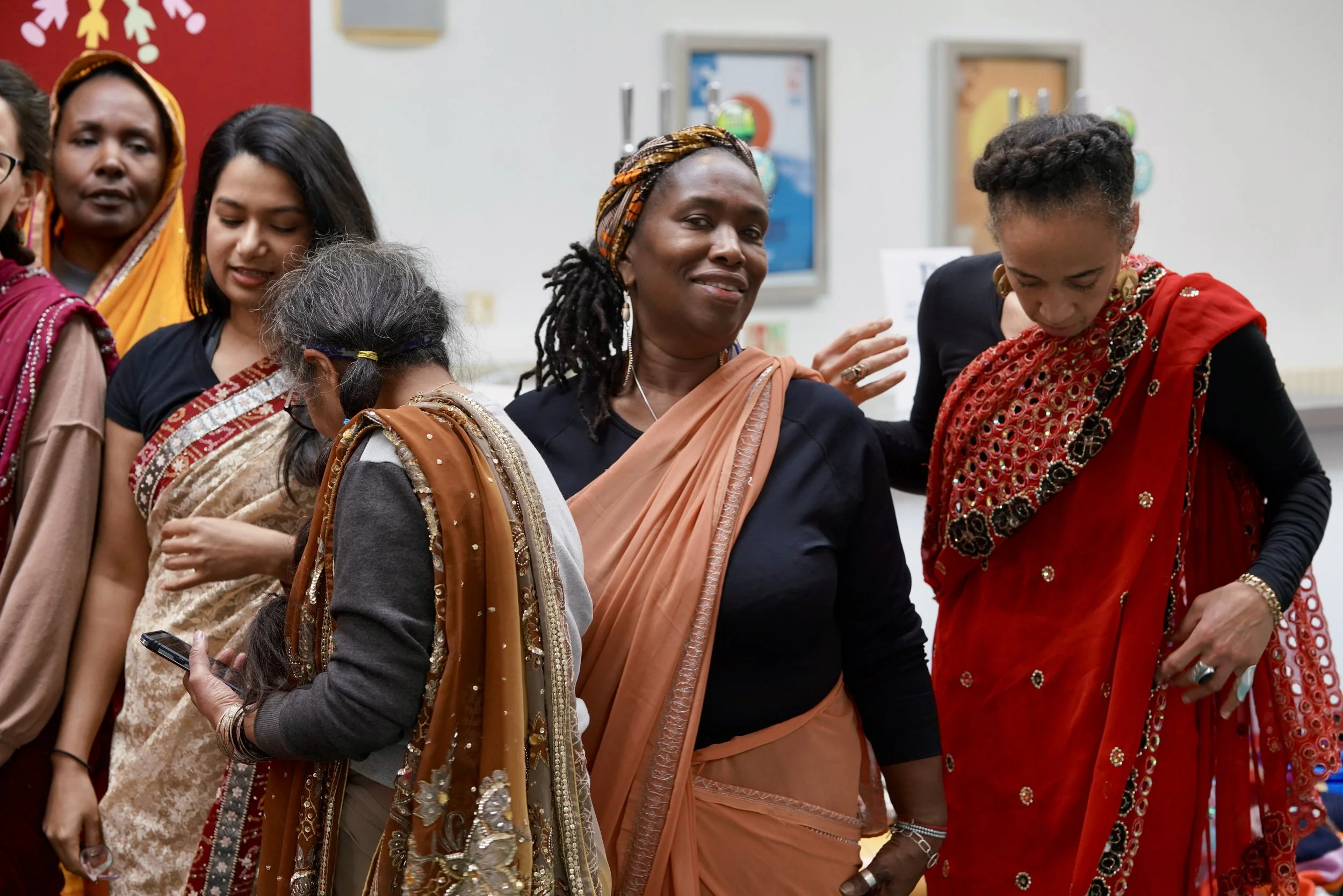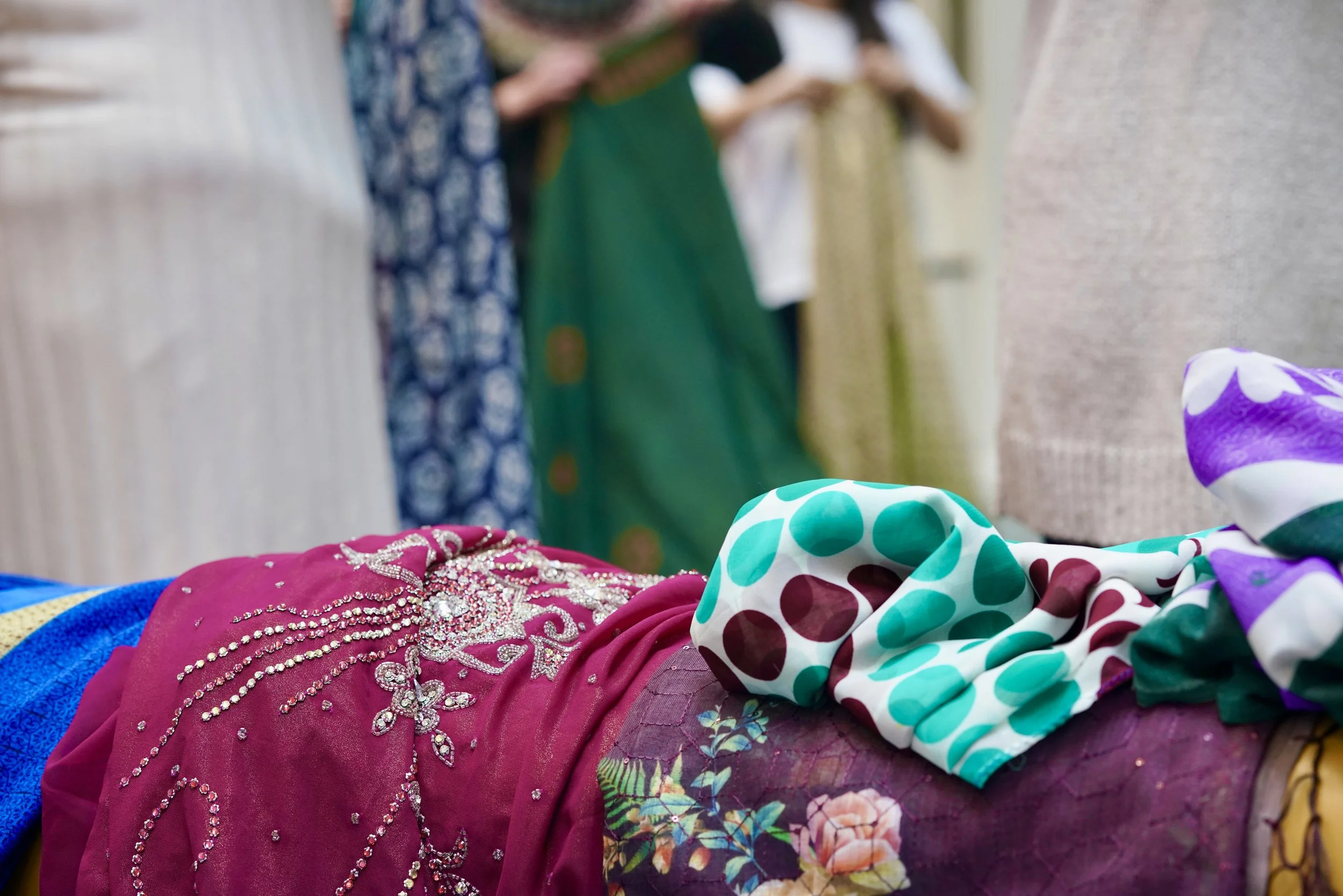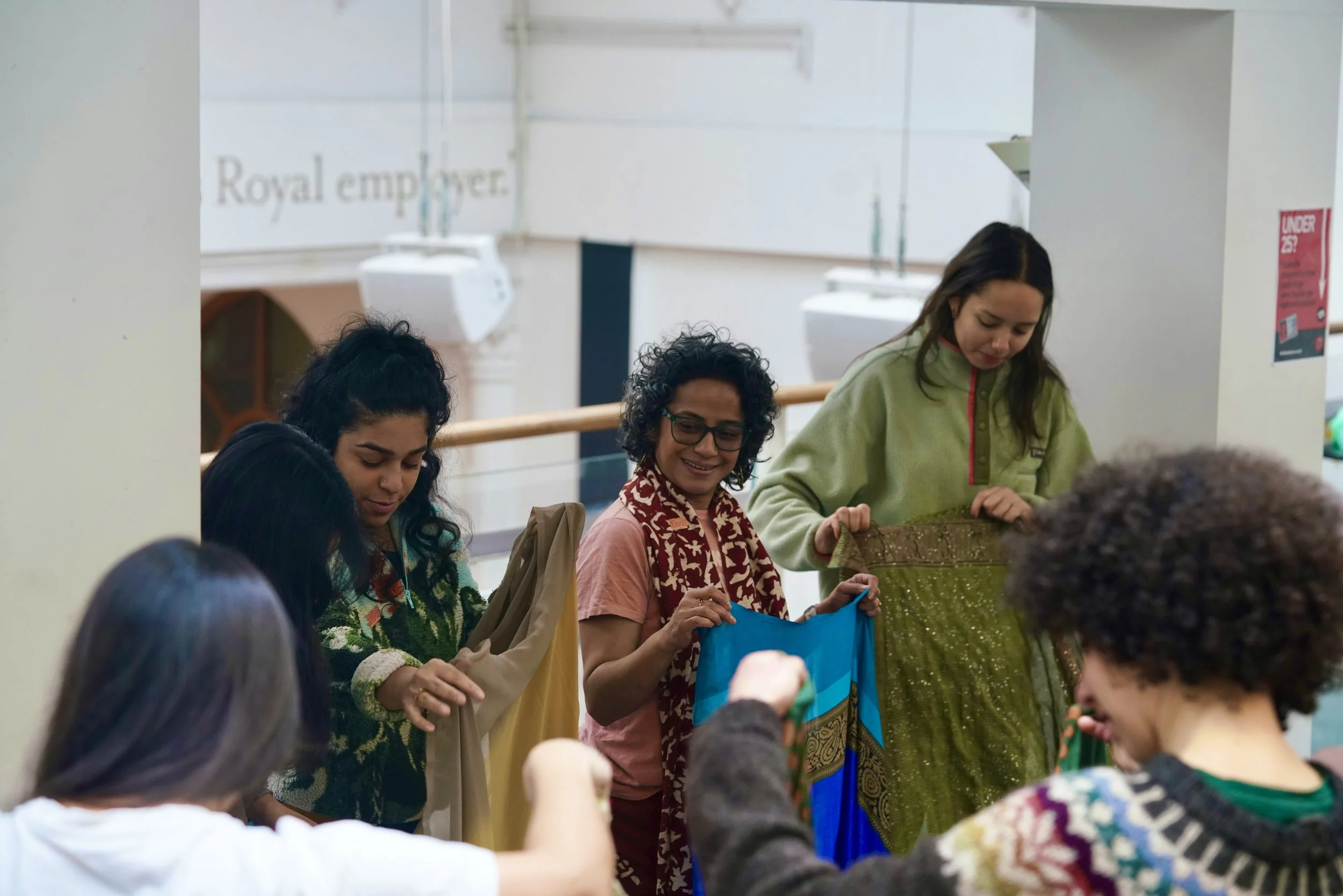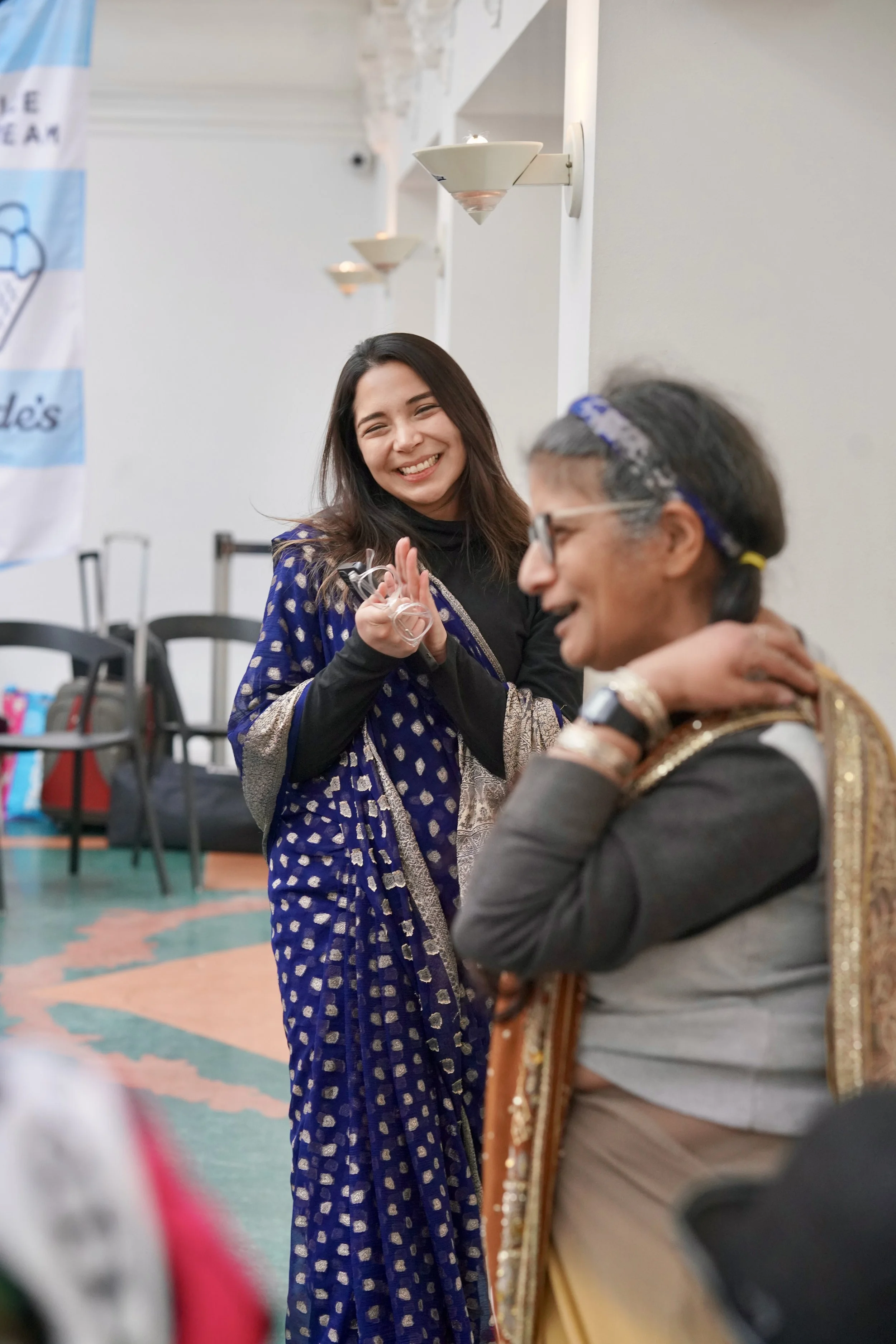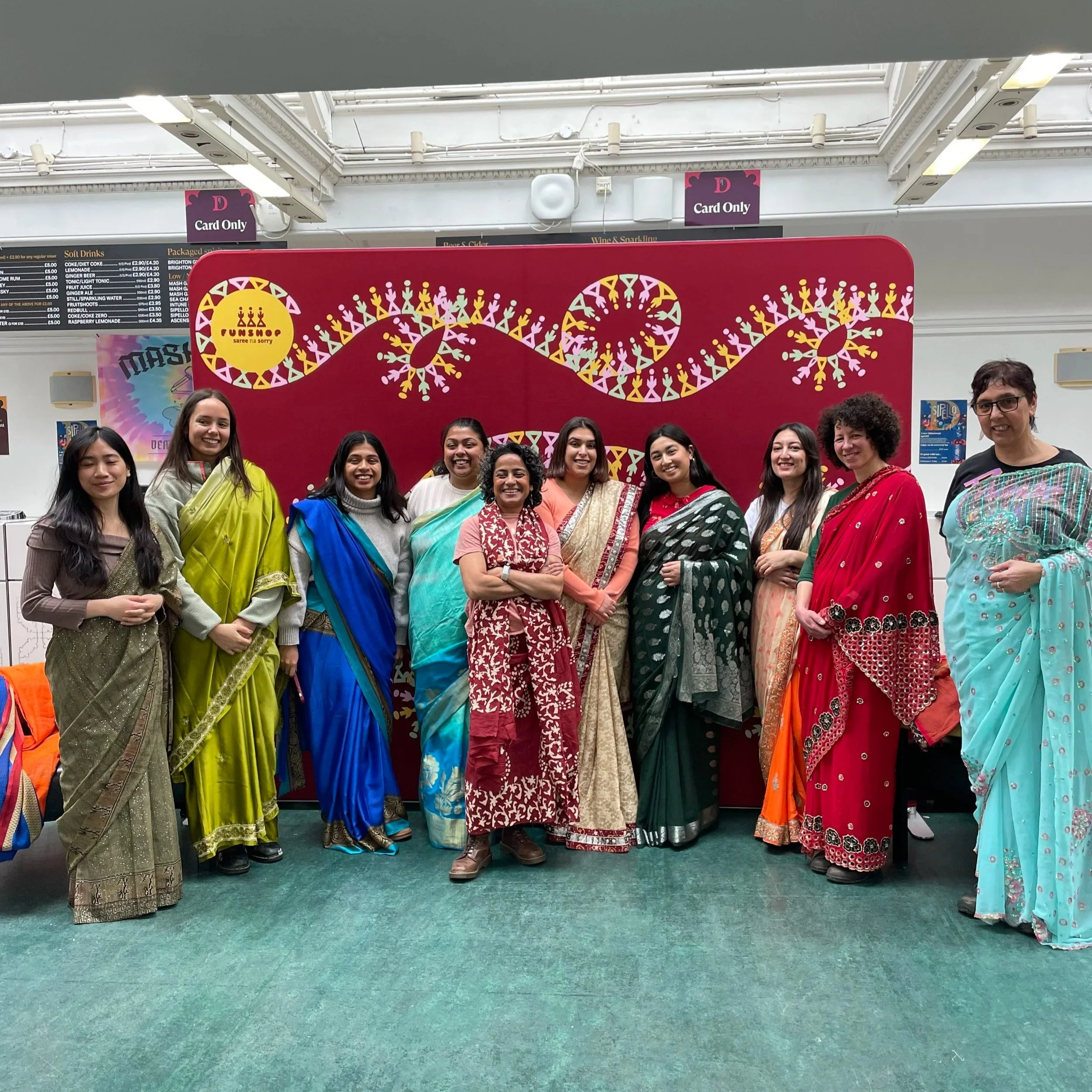Self Love Festival
On the 15th February 2025, we held two Funshops as part of the annual Self Love Festival hosted by the Women of Colour group in Brighton. The Funshops took place in the iconic Brighton Dome venue.
It was a day to celebrate community and love, and what better way to celebrate than dressing up and having fun with friends?
Snapshot…
Our Approach…
The Women of Colour Brighton group is a community network with over 1500 members in Brighton and beyond. The group has existed for over seven years and is run by volunteers who are committed to creating an open space for women of colour to connect with one another and feel empowered to embrace their cultural identities.
Women of colour in the UK often experience discrimination in their everyday lives. The Fawcett Society found that in 2022, 75% of women of colour experienced racism at work, and 61% of women felt a pressure to ‘change’ themselves to fit-in at work - changing things like the language they use, their hairstyles, clothes, or even their name.
Events like the Women of Colour group’s Self Love Festival are an important act of resistance to these forms of discrimination. By providing a space for women of colour to be themselves and inspire self-appreciation and self-worth, they challenge the notion that women have to alter themselves to grow in their career and in their personal lives.
We were honoured to play a part in encouraging women of colour to embrace their cultural identities and heritage. The saree is a visual representation of South Asian women and is worn by millions around the world, but many South Asian women in the UK fear wearing sarees in public due to discrimination and negative stereotyping. We wanted the Funshops to be a celebration of the saree and to challenge some of the negative thinking associated with the garment for our attendees.
Photography Credits: Tara Huzar
Introductions and Discussion
The Funshops both began with short introductions and everyone answered the question, ‘What brought you here today?’. There were a wide range of answers; some people wanted to learn more about sarees and experience wearing one, other people wanted to grow their connection to their cultural heritage through dress.
Poppy, the Funshop facilitator, walked the group through a ‘Care Agreement’; a set of principles to create a safe environment that inspires honesty and vulnerability.
This was followed by a group discussion about the history and context of the saree. To hear how everyone viewed themselves in relation to the saree was thought-provoking; some people felt it was something bigger than them, they felt simultaneously intimidated and curious about the garment. Many of the attendees were Asian-British, some of whom had grown up seeing the saree but never wearing one themselves. One person reflected that they felt some shame around their disconnect to their culture, and wanted to reignite their sense of belonging to their heritage.
Being of mixed heritage can often lead to a feeling of detachment from culture, which can be upsetting and can create confusion about self-identity. We wanted to recognise the validity of these feelings, and look at ways that we can embrace all aspects of our identity authentically.
In the afternoon session, several people shared that they came to the Funshop because of their belief that clothes are an integral aspect of self-expression. We were fascinated to hear our participants’ experiences of wearing clothes demonstrating their culture and political beliefs, such as donning kilts as an act of national pride and participating in the ‘Women in Black’ movement to show solidarity with women oppressed by global violence.
Photography Credits: Tara Huzar
Draping Up…
It was then time to drape the sarees! Everybody picked a couple of sarees from our wide selection. Poppy guided the group on how to tie and drape the sarees in the nivi drape. It took a little bit of time while everybody worked out how to perfect the pleats, but it was a joyous moment for the groups as everybody helped each other, building a sense of togetherness.
When everybody was dressed, we reflected on how we felt in the sarees. In the morning session, one person said that it felt ‘unfamiliar in a good way’. We took a moment to process this and reflect on the challenges that come with belonging to multiple cultures - such as feeling less connected to one. It was important for us to remind everybody that identity does not have to be proven, it is something we are entitled to explore however we decide to.
For other people, wearing the saree brought up mixed feelings. One person said that they felt like ‘the best dressed bitchy lady’, in reference to her memories of older family members and people within her community that she had seen growing up, gossiping. Although it was a humorous moment, it brought up some nuanced feelings. We wanted to give her the space to sit with and explore those emotions.
It is our intention for all the Funshops to be a joyful experience, but we recognise that conversations around identity, colonialism, and heritage can be heavy and people may have deeply personal and emotional responses to such topics. We would never push anyone to discuss more than they are comfortable with, but we do believe it is necessary to explore and recognise difficult feelings in order to heal from the traumas they might cause.
Our conversations were followed by a mirror reveal so that the participants could see their looks. One by one, they stepped up to a full length mirror to see themselves in the saree for the first time. It was a special and emotional moment. Two half-Sri Lankan sisters reflected that seeing themselves in the saree and learning how to drape gave them a feeling of ‘control’ and ownership over their cultural identities. A number of participants were visibly surprised and pleased by how they looked, reflecting that they felt beautiful and powerful.
Both sessions continued with participants trying on more sarees and experimenting with different drapes. Poppy demonstrated how to do the kaccha/dhoti drape which some people felt more comfortable in as it allowed more movement.
The Funshops concluded with reflections about what we had learnt and what emotions had been brought up. In both sessions, participants agreed that they had a new appreciation for the saree and a greater understanding of what it can stand for.
A lot of participants agreed that the session had made them feel closer and more connected to their heritage and family. There was a sense of pride amongst the groups, and some people shared that they felt empowered to continue experimenting with their sarees and to find new ways to engage with their heritage.
In the afternoon session, one of the main recurring ideas was that clothes are a significant aspect of our identity and how we connect to others. The group reflected that there have been barriers that have stopped them from wearing what they wanted - including location, becoming a mother, feeling disconnected from culture and more. We agreed that through coming together as a group and having conversations about the art of drapery, we can celebrate cultural dress and wearing what makes you feel most like yourself.
For us, we felt that the Funshops embodied the values of the festival, giving women of colour the opportunity to explore different aspects of their identity without repercussions or negative stereotyping. It was a brilliant day and we thank the Women of Colour group for inviting us to host the Funshops within their festival.
